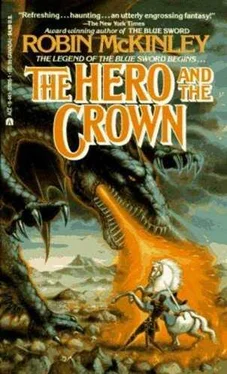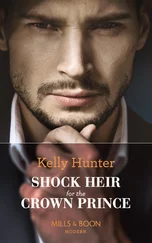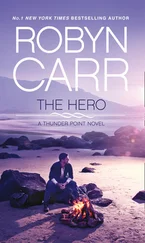Robin McKinley - The Hero And The Crown
Здесь есть возможность читать онлайн «Robin McKinley - The Hero And The Crown» весь текст электронной книги совершенно бесплатно (целиком полную версию без сокращений). В некоторых случаях можно слушать аудио, скачать через торрент в формате fb2 и присутствует краткое содержание. Год выпуска: 1984, Жанр: Фэнтези, на английском языке. Описание произведения, (предисловие) а так же отзывы посетителей доступны на портале библиотеки ЛибКат.
- Название:The Hero And The Crown
- Автор:
- Жанр:
- Год:1984
- ISBN:нет данных
- Рейтинг книги:4 / 5. Голосов: 1
-
Избранное:Добавить в избранное
- Отзывы:
-
Ваша оценка:
- 80
- 1
- 2
- 3
- 4
- 5
The Hero And The Crown: краткое содержание, описание и аннотация
Предлагаем к чтению аннотацию, описание, краткое содержание или предисловие (зависит от того, что написал сам автор книги «The Hero And The Crown»). Если вы не нашли необходимую информацию о книге — напишите в комментариях, мы постараемся отыскать её.
But it is Aerin who rediscovers the old recipe for dragonfire-proof kenet, and when the army is called away to the other side of the country, it is she who, alone but for Talat, rides out to confront Maur, the Black Dragon, the last of the Great Dragons, for centuries thought dead.
Mythopoeic Fantasy Award for Adult Literature (nominee)
Newbery Medal
The Hero And The Crown — читать онлайн бесплатно полную книгу (весь текст) целиком
Ниже представлен текст книги, разбитый по страницам. Система сохранения места последней прочитанной страницы, позволяет с удобством читать онлайн бесплатно книгу «The Hero And The Crown», без необходимости каждый раз заново искать на чём Вы остановились. Поставьте закладку, и сможете в любой момент перейти на страницу, на которой закончили чтение.
Интервал:
Закладка:
And across the battlefield, near the City, the beleaguered Damarians looked up to see what was suddenly causing such consternation in the ranks of their enemies. Looked up: and strained their eyes, for what they saw was a blue sea rushing toward them, a white crest at its peak where it reared to break. But the blue surface rippled more like furry backs than like water, and the rearing white crest was a war-horse, and a sword blazed blue in his rider’s hand; he carried no shield and wore no armor, but he seemed not to need it, for the Northerners fled before him, and only his sword’s quickness stayed their flight, and slew them as they sought to escape.
The white horse neighed with war fury, and the yerig bayed, and the folstza cried their harsh hunting cries, and nearer and nearer the rushing blue army came; and the Damarians, some of them, found themselves fearing this unlooked-for succor, and wondered what the white rider planned for them when he had cut his way so far; for there was no doubt that he drew near them, as if their City’s gates were his destination; nor was there any doubt that he would succeed in arriving there.
But there was a muffled exclamation from Tor. “To me! Quickly!” He urged his tired Dgeth forward, and his excitement gave her new strength. “Follow me! It’s Aerin!”
Only a few followed him; but whether this was for weariness or deafness, or fear of the blue thing, or fear that the blue thing was or was not Aerin-sol, it was impossible to say; but one of those who followed close on Dgeth’s heels was the messenger who had once brought news of Maur’s terrible waking to the king.
Aerin knew her arm was tired, but it did not seem to matter; Gonturan found the necks and vitals of the Northerners with her own keen edge and merely drew Aerin’s arm with her. Then Aerin heard her name called, and she shook her head, for she was imagining things; but she heard it again. It occurred to her that it sounded like Tor’s voice, and that perhaps she was not imagining things, and she looked up, and there was Tor indeed. Heavy ranks of Northerners separated them yet, and even as their eyes met, a riding beast, mottled yellow and with forked hoofs and the ears of a cat, reared up between them, and Aerin saw the one-eyed queen hanging from its throat, and two of her followers leaping for purchase at its flanks. Hamstrung, it fell kicking, and the queen pulled the rider down, and Aerin watched no further; and then Talat kicked and leaped sideways, and there was work for Gonturan again; and for a moment she lost Tor.
She called his name, this time, and at last she heard him answer; he was to one side of her now, but when she turned Talat that way the battle seemed only to drag him farther away. Then the Crown, which had clung to her shoulder all this time as if by its own volition, shook loose and ran down her arm, and struck Gonturan’s hilt with a clang.
“Tor!” she cried again; and as his face turned to her, she tossed the Crown over the hilt, to the tip of the sword, swept the blade upright, and—flung the Hero’s Crown across the evil sea that churned between them.
Gonturan blazed up like a falling star as the Crown ran her length, and as it wheeled into the air it in its turn burst into flame, red as the sun at noon, red as a mage’s hair; and Tor, dumbly, raised his own sword as if in salute, and the Crown caught its edge, swung, hissing, round the tip, and fell to circle his wrist. Any Northerner might have killed him then, for he dropped his shield, and his sword arm was stretched out immobile as he stared at the glowing red thing hanging from his arm. But the Northerners were afraid of it too; they had seen enough of strange Lights, and the blue one they already knew to be fatal. And the white rider had thrown this thing from the wicked Blue Sword.
Aerin shrieked: “It’s the Crown, can’t you see? PUT IT ON!”
Tor looked up again; Aerin was quite near now, and then she was beside him, banging her calf painfully against his stirrup as Talat pranced and pretended to be taller. She yanked his arm down, pried his fingers loose from his sword hilt, shook the Crown free; pulled his head down toward her and jammed the Crown over his temples.
Chapter 23
AFTER THAT THE DAY belonged to the Damarians, for between the White Rider and the Scarlet there was no hope for the Northerners. But it was nonetheless a long and bitter day for the victors, and they lost many more of their people before it was over, including many simple folk who had never held weapons in their lives before, but who preferred the deadly risk of the battlefield to the terrible passive waiting to hear the final news. The Northerners, too, were slow to acknowledge defeat, even after they knew there was no chance left of their winning. In this war no captives were taken, for a captive demon is a danger to his jailer. It was not till evening drew near, and Talat was limping heavily with weariness, and Aerin held on to her saddle with her shieldless hand, that the remaining Damarians began to be able to gather at the foot of the king’s way before the City gates, and lay down their arms, and think about rest. The Northerners were fleeing at last, fleeing as best they might, on three legs, or four, or five; some crawled. What Damarians had yet the strength pursued the slowest and gave them the last blow of mercy, but as darkness fell they left their treacherous enemies to the shadows, and crowded around the fire that had been built near the last standing monolith.
There was little rejoicing, for all were weary, bone-weary, death-weary; and they had had so little hope that morning that now in the evening they had not yet truly begun to believe they had won after all. And there were the wounded to attend to; and all those still left on their legs helped, for there were few enough of them. Many of them were children, for even the healers had taken sword or knife by the end and gone into battle. But the youngest children could at least carry bandages, and collect sticks for the fire, and carry small skins of water to fill the great pot hung over the fire; and as there was no child who had not lost a father or mother or elder brother or sister, the work was the best comfort the weary remaining Damarians could give them.
Aerin and Tor were among those still whole, and they helped as they could. No one noticed particularly at the time, but later it was remembered that most of those who had felt the hands of the first sol, her blue sword still hanging at her side, or of the first sola, the Hero’s Crown still set over his forehead, its dull grey still shadowed with red, recovered, however grave their wounds. At the time all those fortunate enough to feel those hands noticed was that their touch brought unexpected surcease of pain; and at the time that was all any could think of or appreciate.
Perlith had died on the battlefield. He had led his company of cavalry tirelessly through the last endless weeks, and his men had followed him loyally, with respect if not with love; for they trusted his coolness in battle, and learned to trust his courage; and because even as he grew worn and haggard as the siege progressed, his tongue never lost its cleverness or its cutting edge. He died on the very last day, having come unscathed so far, and his horse came back without him after darkness had fallen, and the saddle still on its back was bloody.
Galanna was holding a bowl of water for a healer when Perlith’s horse came back, and someone whispered the news to her where she knelt. She looked up at the messenger, who was too weary himself to have any gentleness left for the breaking of bad news, and said only, “Thank you for telling me.” She lowered her eyes to the pink-tinted water again and did not move. The healer, who had known her well in better days, looked at her anxiously, but she showed no sign of distress or of temper; and the healer too was weary beyond gentleness, and thought no more about it. Galanna was conscious that her hair needed washing, that her gown was torn and soiled—that her hands would be trembling were it not for the weight of the bowl she carried; that someone had just told her that Perlith was dead, that his horse had returned with a blood-stained saddle. She tried to think about this, but her mind would revert to her hair, for her scalp itched; and then she thought, I will not see my husband again, it does not matter if my hair is clean or not. I do not care if my hair is ever clean again. And she stared dry-eyed into the bowl she held.
Читать дальшеИнтервал:
Закладка:
Похожие книги на «The Hero And The Crown»
Представляем Вашему вниманию похожие книги на «The Hero And The Crown» списком для выбора. Мы отобрали схожую по названию и смыслу литературу в надежде предоставить читателям больше вариантов отыскать новые, интересные, ещё непрочитанные произведения.
Обсуждение, отзывы о книге «The Hero And The Crown» и просто собственные мнения читателей. Оставьте ваши комментарии, напишите, что Вы думаете о произведении, его смысле или главных героях. Укажите что конкретно понравилось, а что нет, и почему Вы так считаете.












